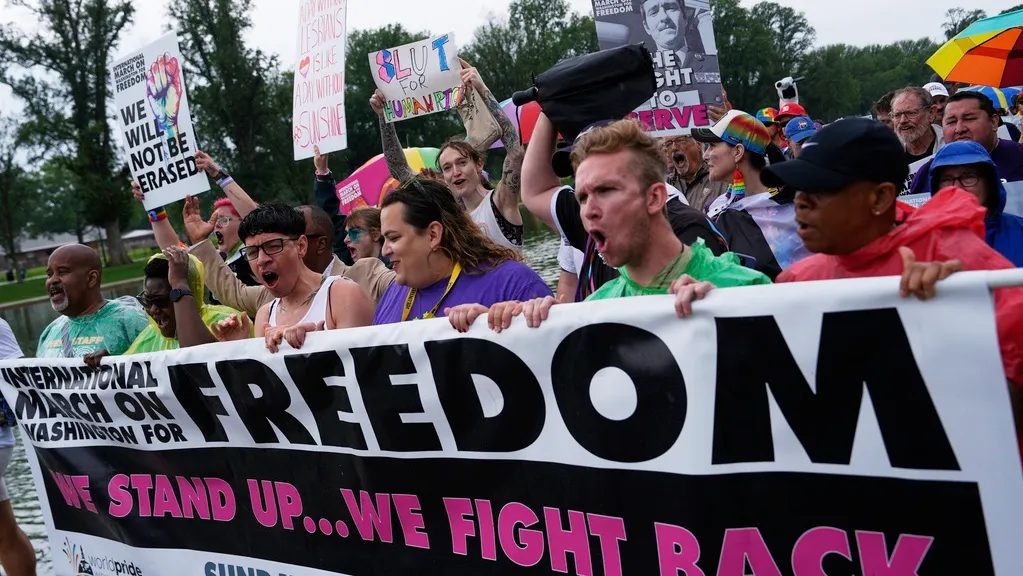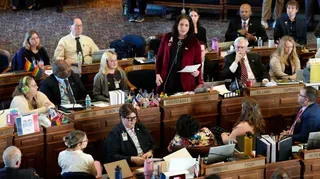September 8, 2013
SCOTUS DOMA Ruling Benefits Some NH Retirees
Bobby McGuire READ TIME: 2 MIN.
The New Hampshire Retirement System is reviewing its records to see whether it owes a medical insurance subsidy or other benefits to workers who got married after the state legalized same-sex marriage in 2010.
Retirement system spokesman Marty Karlon said New Hampshire's government workers had the right to designate gay spouses as their nonspouse pension beneficiaries before the U.S. Supreme Court overturned provisions in the federal Defense of Marriage Act.
The court ruling in June threw out the law's provisions keeping legally married same-sex couples from receiving tax, health and pension benefits that are available to married heterosexual couples.
That means gay government workers' spouses will be treated the same as heterosexual spouses in pension benefits paid by the state retirement system. The biggest change affects those entitled to a subsidy toward health care, Karlon said.
"Going forward, they will be on parity with heterosexual couples," Karlon said.
So far, the retirement system has received inquiries from 18 retirees and 43 active members about possible benefits due to them.
Four retirees' spouses qualified for the medical insurance subsidy, and the system began issuing payments in August retroactive to June, when the court ruling was issued, Karlon said. The Internal Revenue Service is working on guidance about whether gay married retirees are entitled to benefits retroactively to when New Hampshire legalized same-sex marriage, he said.
"We wanted to get some benefits to people as soon as we could," he said.
Another eight retirees also qualify for the subsidy, but their spouses aren't yet on the retirees' health plan. The medical insurance subsidy is paid only if the retiree and spouse are covered by their former employer's health plan, but the eight spouses could receive the benefit if they switch to the retirees' plans, Karlon said.
The retirement system pays the former employer $375 per month for the retiree and another $375 for the spouse to offset the cost of the premium. The amount drops to $237 per person once they are eligible for Medicare. The retiree pays the balance of the premium, except for state workers who pay a flat amount for their premium.
Not everyone qualifies for the subsidy. Lawmakers have limited the subsidy program to state and municipal workers and teachers who retired by July 1, 2009, and to police officers and firefighters hired before June 30, 2000, Karlon said.
The public pension system covers about 49,000 active and 28,000 retired state and municipal workers, teachers, police and firefighters. Contributions from employers - the state and local governments - and employees plus money earned through investments make up the pension fund. About 10,000 retirees are eligible for the medical subsidy, Karlon said.
As of June 30, 2012, the pension system was 56 percent funded, but Karlon said so few retirees are expected to be affected by the court ruling that retroactive benefit payments will have no material impact on the system's funding.




